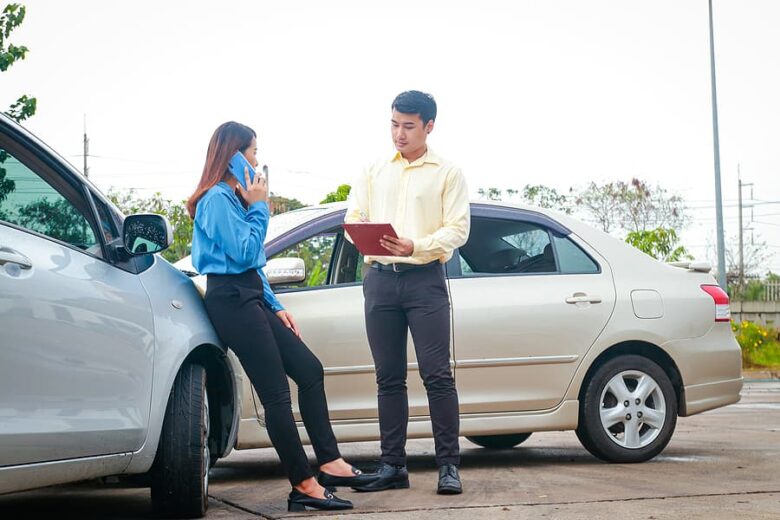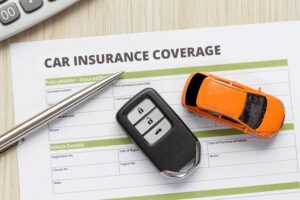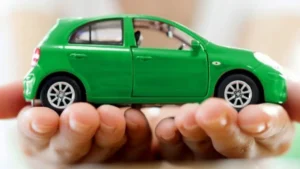After an accident occurs, it is vital that you contact your insurer as quickly as possible in order to receive assistance – this includes getting a rental car if required.
Exchange contact and information with the other driver, such as their name, address, phone number, insurance provider and policy number (which should match with their proof of insurance card). It is also beneficial to get badge numbers and names of any responding police officers at the scene.
Contact Your Insurance Company
When communicating with the insurance company, it’s essential that you remain polite but objective. Their representatives may use any excuse they can to reduce or deny your claim; make sure they don’t gain anything they could use against you!
Avoid Discussing Emotions – While it’s understandable to feel frustrated or scared after a car accident, it’s essential that your emotions remain in check when speaking to an insurance company. Avoid saying things such as “I feel fine”, as injuries may take time to manifest and that can create issues when trying to cover medical bills later on.
Answer only the questions asked – The insurance representatives will likely ask for your basic details, such as name, address, phone number and insurance details; as well as potential witnesses names. It would be beneficial if this information could be written down beforehand so it will be easy for you to recall later.
Document the accident scene by taking photos from multiple angles and writing down relevant details, so your insurance provider can better ascertain who was at fault and the type of compensation due for your losses. This step is particularly crucial if you carry uninsured/underinsured motorist coverage which will cover some damages in case the other driver doesn’t carry sufficient coverage themselves.
Contact Your Attorney
When communicating with an insurance company, it’s essential that you remain calm and stick to the facts. An attorney is also an invaluable asset in representing your interests in such cases; their experience will allow for smoother dialogue. Furthermore, an attorney can help ascertain the full value of your claim.
Be sure to exchange all necessary information with the other driver prior to calling your insurance company, such as their name, phone number, address and insurance provider details. It may also be wise to take photos and video footage of the accident scene; this will capture details that may otherwise fade over time such as weather and traffic conditions.
After an accident occurs, it’s essential that medical attention be sought immediately. Some injuries are not always visible at first and may worsen with time; your attorney can recommend a doctor who will assess and provide treatment recommendations for your injury.
Once you have provided all the required information to an insurance provider, it is a good idea to reach out and talk with their agent or provider about next steps. This may include reviewing your policy to make sure it provides adequate protection and covers you adequately.
File a Claim
Your insurance company needs all the required documents and information in order to process your claim quickly, so consider taking photos of the scene as well as of your damaged vehicle for easy reference should your memory become impaired due to an accident. Doing this could serve as an aid should they become impaired afterward.
It is always wise to contact the police if possible. They will file an official report that serves as essential documentation of what occurred, which will come in handy should you need to file an insurance claim for any type of damages sustained during an incident.
Before exchanging information with other drivers involved, always exchange contact details. These should include names, home and work phone numbers, insurance company and license plate number. Furthermore, collect any witness names at the scene as witness statements can help establish fault and settle claims more effectively.
Keep in mind that your insurance company has the right to subrogation, which allows it to recover any expenses from third parties that it pays out for you. Your policy may provide guidelines on this process, and you should cooperate with any attempts by them at subrogation in order to maintain coverage. It would be prudent to keep a copy of their preferred claims filing procedures handy so you are familiar with them should an incident occur and can refer back to them if needed.
Get Medical Attention
As soon as an accident has taken place, it is imperative that you visit a healthcare professional regardless of its severity. Our bodies were never meant to withstand the hundreds of pounds of metal, glass and plastic that collides during car crashes; often without showing symptoms immediately (such as concussion or internal bleeding). Consulting a doctor about their injuries is beneficial both to your health and legal case.
Your medical records can help establish the relationship between your accident and any injuries sustained as a result of it, and the severity of those injuries. This strengthens your personal injury claim while discouraging insurers from alleging that they weren’t caused by it or are more severe than originally claimed.
If it is safe, take pictures of both your vehicle and accident scene. Also move it if possible to a safe area and warn oncoming traffic by setting flares or using your hazard lights.
First and foremost, exchange information with all drivers involved in an accident, including their names and contact info as well as insurance company, policy number and license plate numbers. Aim to avoid discussing fault or offering excuses which could later be misconstrued as admission of liability in court; our legal team can assist in gathering necessary paperwork to support your claims.



